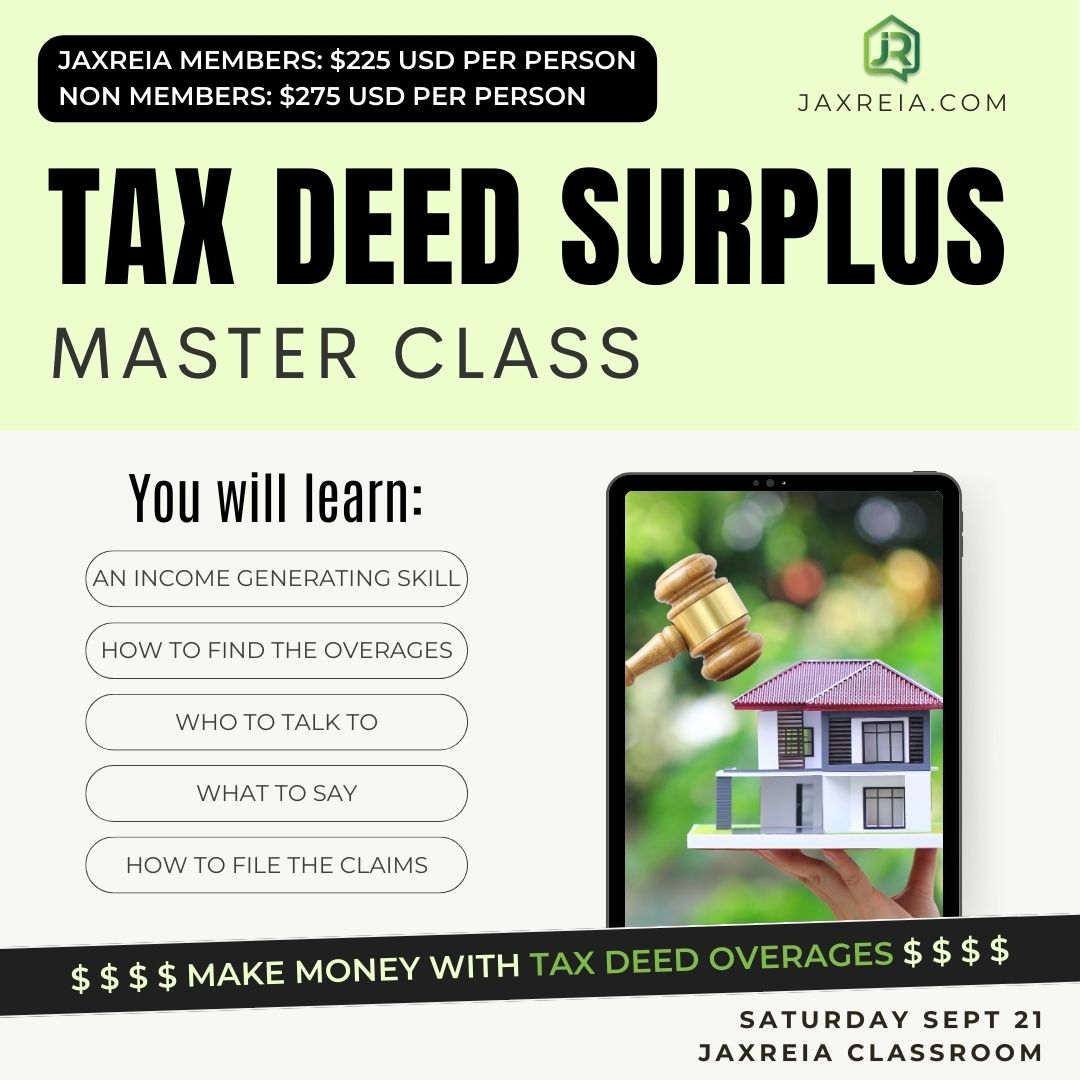All Categories
Featured
Table of Contents
Our excess funds healing attorneys have assisted building owners recuperate millions of dollars in tax sale overages. But a lot of those home owners didn't even recognize what excess were or that they were even owed any kind of surplus funds whatsoever. When a homeowner is unable to pay residential or commercial property taxes on their home, they might lose their home in what is called a tax sale public auction or a constable's sale.
At a tax obligation sale public auction, residential or commercial properties are offered to the greatest bidder, nonetheless, in some cases, a residential or commercial property may cost even more than what was owed to the area, which leads to what are called excess funds or tax sale excess. Tax obligation sale excess are the money left over when a confiscated residential or commercial property is cost a tax sale public auction for greater than the quantity of back tax obligations owed on the building.
If the property costs greater than the opening bid, after that excess will be generated. What many property owners do not recognize is that several states do not permit counties to keep this added cash for themselves. Some state statutes dictate that excess funds can just be asserted by a few events - including the person who owed taxes on the home at the time of the sale.
If the previous homeowner owes $1,000.00 in back taxes, and the home costs $100,000.00 at auction, after that the regulation specifies that the previous homeowner is owed the distinction of $99,000.00. The area does not obtain to keep unclaimed tax overages unless the funds are still not declared after 5 years.
Acclaimed Unclaimed Tax Overages Strategy Bob Diamond Tax Sale Overages
However, the notification will generally be sent by mail to the address of the residential property that was sold, yet given that the previous homeowner no longer lives at that address, they typically do not obtain this notice unless their mail was being sent. If you remain in this situation, don't let the federal government keep money that you are qualified to.

From time to time, I listen to discuss a "secret new opportunity" in the company of (a.k.a, "excess proceeds," "overbids," "tax obligation sale excess," etc). If you're totally unfamiliar with this idea, I would love to provide you a fast overview of what's going on here. When a building proprietor stops paying their residential or commercial property taxes, the regional town (i.e., the region) will certainly await a time prior to they take the building in repossession and market it at their annual tax sale public auction.
makes use of a similar model to recoup its lost tax profits by selling homes (either tax deeds or tax liens) at a yearly tax obligation sale. The details in this post can be impacted by numerous distinct variables. Always seek advice from with a competent lawyer prior to doing something about it. Suppose you possess a property worth $100,000.
Exclusive Unclaimed Tax Overages Program Tax Deed Overages

At the time of foreclosure, you owe about to the county. A few months later, the county brings this property to their annual tax obligation sale. Below, they market your property (in addition to lots of other delinquent homes) to the greatest bidderall to recover their lost tax obligation earnings on each parcel.
Most of the investors bidding on your property are fully conscious of this, too. In numerous cases, residential or commercial properties like your own will receive bids FAR beyond the amount of back taxes really owed.
Get this: the region only required $18,000 out of this home. The margin in between the $18,000 they needed and the $40,000 they obtained is referred to as "excess profits" (i.e., "tax obligation sales overage," "overbid," "surplus," etc). Several states have laws that forbid the area from keeping the excess repayment for these residential properties.
The area has policies in area where these excess earnings can be declared by their rightful proprietor, usually for a designated duration (which varies from one state to another). And that precisely is the "rightful owner" of this cash? It's YOU. That's right! If you lost your residential or commercial property to tax obligation foreclosure because you owed taxesand if that residential or commercial property consequently cost the tax sale public auction for over this amountyou might feasibly go and collect the distinction.
Specialist Foreclosure Overages List Training Tax Overages Business
This consists of showing you were the previous owner, completing some documentation, and waiting on the funds to be delivered. For the average individual that paid full market price for their residential property, this approach does not make much sense. If you have a serious quantity of cash money spent into a building, there's way excessive on the line to simply "let it go" on the off-chance that you can milk some extra squander of it.
With the investing approach I utilize, I could acquire residential properties free and clear for cents on the buck. When you can get a residential or commercial property for a ridiculously cheap rate AND you understand it's worth significantly more than you paid for it, it may really well make feeling for you to "roll the dice" and attempt to collect the excess proceeds that the tax foreclosure and public auction procedure produce.
All-In-One How To Recover Tax Sale Overages System Tax Overages Business
While it can definitely turn out similar to the means I've explained it above, there are also a few disadvantages to the excess earnings approach you really should understand. Unclaimed Tax Sale Overages. While it depends substantially on the characteristics of the property, it is (and in some instances, most likely) that there will be no excess proceeds generated at the tax sale auction
Or perhaps the area doesn't create much public passion in their public auctions. In any case, if you're buying a property with the of letting it go to tax obligation repossession so you can gather your excess profits, suppose that money never comes through? Would certainly it deserve the moment and cash you will have squandered when you reach this final thought? If you're anticipating the county to "do all the work" for you, after that think what, In several situations, their timetable will actually take years to pan out.
The very first time I sought this strategy in my home state, I was informed that I really did not have the alternative of asserting the excess funds that were generated from the sale of my propertybecause my state didn't allow it (Tax Lien Overages). In states like this, when they produce a tax sale excess at an auction, They simply maintain it! If you're considering using this method in your service, you'll intend to assume lengthy and tough concerning where you're operating and whether their regulations and laws will also permit you to do it
Well-Regarded Tax Overages Business Program Tax Deed Overages
I did my best to give the proper answer for each state above, yet I 'd advise that you prior to waging the presumption that I'm 100% right. Keep in mind, I am not a lawyer or a certified public accountant and I am not trying to hand out expert legal or tax suggestions. Speak to your lawyer or CPA before you act upon this info.
Latest Posts
Back Taxes Home For Sale
Foreclosed Tax Properties
Certificate In Invest Lien Tax